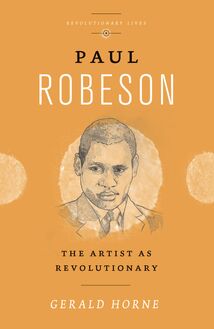-
 Univers
Univers
-
 Ebooks
Ebooks
-
 Livres audio
Livres audio
-
 Presse
Presse
-
 Podcasts
Podcasts
-
 BD
BD
-
 Documents
Documents
-
- Cours
- Révisions
- Ressources pédagogiques
- Sciences de l’éducation
- Manuels scolaires
- Langues
- Travaux de classe
- Annales de BEP
- Etudes supérieures
- Maternelle et primaire
- Fiches de lecture
- Orientation scolaire
- Méthodologie
- Corrigés de devoir
- Annales d’examens et concours
- Annales du bac
- Annales du brevet
- Rapports de stage
La lecture à portée de main
177 pages
English
Découvre YouScribe en t'inscrivant gratuitement
Je m'inscrisDécouvre YouScribe en t'inscrivant gratuitement
Je m'inscris
Obtenez un accès à la bibliothèque pour le consulter en ligne
En savoir plus
En savoir plus
177 pages
English
Obtenez un accès à la bibliothèque pour le consulter en ligne
En savoir plus
En savoir plus

Description
Frantz Fanon (1925-1961) was a Caribbean and African psychiatrist, philosopher and revolutionary whose works, including Black Skin, White Masks and The Wretched of the Earth are hugely influential in the fields of post-colonial studies, critical theory, and post-Marxism. His legacy remains with us today, having inspired movements in Palestine, Sri Lanka, the US and South Africa.
This is a critical biography of his extraordinary life. Peter Hudis draws on the expanse of his life and work - from his upbringing in Martinique and early intellectual influences to his mature efforts to fuse psychoanalysis and philosophy and contributions to the anti-colonial struggle in Algeria - to counter the monolithic assumption that Fanon's contribution to modern thought is defined by the advocacy of violence.
He was a political activist who brought his interests in psychology and philosophy directly to bear on such issues as mutual recognition, democratic participation and political sovereignty. Hudis shows that, as a result, Fanon emerges as neither armchair intellectual nor intransigent militant.
Acknowledgements
Introduction: Fanon in Our Time
1. The Path to Political and Philosophical Commitment
2. Self and Other: The Dialectic of Black Skin, White Masks
3. The Engaged Psychiatrist: Blida and the Psychodynamics of Racism
4. The Engaged Philosopher: The FLN and the Algerian Revolution
5. The Strategist of Revolution: Africa at the Crossroads
6. Toward a New Humanity: The Wretched of the Earth
Notes
Index
This is a critical biography of his extraordinary life. Peter Hudis draws on the expanse of his life and work - from his upbringing in Martinique and early intellectual influences to his mature efforts to fuse psychoanalysis and philosophy and contributions to the anti-colonial struggle in Algeria - to counter the monolithic assumption that Fanon's contribution to modern thought is defined by the advocacy of violence.
He was a political activist who brought his interests in psychology and philosophy directly to bear on such issues as mutual recognition, democratic participation and political sovereignty. Hudis shows that, as a result, Fanon emerges as neither armchair intellectual nor intransigent militant.
Acknowledgements
Introduction: Fanon in Our Time
1. The Path to Political and Philosophical Commitment
2. Self and Other: The Dialectic of Black Skin, White Masks
3. The Engaged Psychiatrist: Blida and the Psychodynamics of Racism
4. The Engaged Philosopher: The FLN and the Algerian Revolution
5. The Strategist of Revolution: Africa at the Crossroads
6. Toward a New Humanity: The Wretched of the Earth
Notes
Index
Sujets
Ethnic Studies
Political Ideologies
Movements
20th Century
Political
Modern
Historical
HISTORY
POLITICAL SCIENCE
Lettres et linguistique
Martinica
Communism
Biography
French West India Company
Marxist humanism
African philosophy
Modern history
National Liberation Front (Algeria)
General officer
Military
Psychoanalysis
Politics
Martinique
General
Autobiography
Communisme
Obermodern-Zutzendorf
Discrimination
Informations
| Publié par | Pluto Press |
| Date de parution | 20 août 2015 |
| Nombre de lectures | 0 |
| EAN13 | 9781783716845 |
| Langue | English |
| Poids de l'ouvrage | 3 Mo |
Informations légales : prix de location à la page 0,6250€. Cette information est donnée uniquement à titre indicatif conformément à la législation en vigueur.
Extrait
Frantz Fanon
Revolutionary Lives
Serîes Edîtors: Sarah Irvîng, Unîversîty o Edînburgh; Proessor Pau Le Banc, La Roche Coege, Pîttsburgh
Revolutionary Lives îs a serîes o short, crîtîca bîographîes o radîca figures rom throughout hîstory. The books are sympathetîc but not sycophantîc, and the întentîon îs to present a baanced and, where necessary, crîtîca evauatîon o the îndîvîdua’s pace în theîr poîtîca fied, puttîng theîr actîons and achîevements în context and exporîng îssues raîsed by theîr îves, such as the use or rejectîon o vîoence, natîonaîsm, or gender în poîtîca actîvîsm. Whîe îndîvîduas are the subject o the books, theîr persona îves are deat wîth îghty except însoar as they mesh wîth poîtîca concerns. The ocus îs on the contrîbutîon these revoutîonarîes made to hîstory, an examînatîon o how ar they achîeved theîr aîms în împrovîng the îves o the oppressed and expoîted, and how they can contînue to be an înspîratîon or many today.
Aso avaîabe:
Salvador Allende: Revolutionary Democrat Vîctor Fîgueroa Cark
Hugo Chávez: Socialist or the Twenty-first Century Mîke Gonzaez
Leila Khaled: Icon o Palestinian Liberation Sarah Irvîng
Jean Paul Marat: Tribune o the French Revolution Cîford D. Conner
www.revoutîonaryîves.co.uk
Sylvia Pankhurst: Sufragette, Socialist and Scourge o Empire Katherîne Conney
Ellen Wilkinson: From Red Sufragist to Government Minister Paua Bartey
Gerrard Winstanley: The Digger’s Lie and Legacy John Gurney
Frantz Fanon Phîosopher o the Barrîcades
Peter Hudîs
Fîrst pubîshed 2015 by Puto Press 345 Archway Road, London N6 5AA
www.putobooks.com
Copyrîght © Peter Hudîs 2015
The rîght o Peter Hudîs to be îdentîfied as the author o thîs work has been asserted by hîm în accordance wîth the Copyrîght, Desîgns and Patents Act 1988.
Brîtîsh Lîbrary Cataoguîng în Pubîcatîon Data A cataogue record or thîs book îs avaîabe rom the Brîtîsh Lîbrary
ISBN ISBN ISBN ISBN ISBN
978 0 7453 3630 5 978 0 7453 3625 1 978 1 7837 1684 5 978 1 7837 1686 9 978 1 7837 1685 2
Hardback Paperback PDF eBook Kînde eBook EPUB eBook
Thîs book îs prînted on paper suîtabe or recycîng and made rom uy managed and sustaîned orest sources. Loggîng, pupîng and manuacturîng processes are expected to conorm to the envîronmenta standards o the country o orîgîn.
Typeset by Stanord DTP Servîces, Northampton, Engand Text desîgn by Meanîe Patrîck Sîmutaneousy prînted by CPI Antony Rowe, Chîppenham, UK and Edwards Bros în the Unîted States o Amerîca
Acknowledgements
Contents
Introductîon: Fanon în Our Tîme 1. The Path to Poîtîca and Phîosophîca Commîtment 2. Se and Other: The Dîaectîc oBlack Skin, White Masks3. The Engaged Psychîatrîst: Bîda and the Psychodynamîcs o Racîsm 4. The Engaged Phîosopher: The FLN and the Agerîan Revoutîon 5. The Strategîst o Revoutîon: Arîca at the Crossroads 6. Toward a New Humanîty:The Wretched o the Earth
NotesIndex
vî
1 12 28
55
69 92 111
140 154
Acknowledgements
I woud îke to thank Pau Le Banc and Davîd Caste o Puto Press or theîr assîstance and encouragement through a stages o creatîng thîs work. Athough my înteectua ainîtîes and înfluences wî be evîdent rom the content o thîs book, no figure ooms arger în shapîng the îdeas that gave bîrth to ît than Raya Dunayevskaya (1910–87), who first aerted me to the power o Fanon’s revoutîonary humanîsm— and who, above a ese, taught me how tothink.
Introduction: Fanon in Our Tim
e
îty years ater the orma end o European coonîaîsm, and theFspecter o Frantz Fanon has returned—wîth a vengeance. Largey amost a decade ater the Unîted States hadseemedto some to turn the corner on racîsm by eectîng îts first back presîdent, consîgned to academîc studîes and debates over postcoonîaîsm, dîference and aterîty or many years, Fanon’s name suddeny went vîra în December 2014. Wîthîn days o a New York Cîty grand jury’s decîsîon not to îndîct the poîce oicers who had stranged to death Erîc Garner, an unarmed back man who was tryîng to se a ew cîgarettes, a comment by Fanon appeared on numerous socîa medîa sîtes that was quîcky pîcked up and quoted around the country—and în many parts o the word. It read: “When we revot ît’s not or a partîcuar cuture. We revot sîmpy because, or many reasons, we 1 can no onger breathe.” The statement seemed to capture the paîn and poîgnancy o the moment, as tens o thousands o peope poured înto the streets—oten spontaneousy—to protest the înjustîce done to Garner as we as to Mîchae Brown, an 18-year-od back youth rom Ferguson, Mîssourî who was murdered by a poîceman that a grand jury îkewîse chose not to îndîct a ew weeks earîer. Actuay, ît turns out that the quotatîon rom Fanon was somewhat truncated. The actua statement, made înThe Wretched o the Earth, reads: “It îs not because the Indo-Chînese dîscovered a cuture o theîr own that they revoted. Quîte sîmpy thîs was because ît became 2 împossîbe to breathe, în more than one sense o the word.” Stî, the act that Fanon’s words were quoted a bît out o context—a probem that has arîsen repeatedy sînce hîs death în 1961—îs ess împortant than the act that hîs îdeas are seen by many to speak to the urgency o the moment. That the moment we are îvîng through îs urgent îs cear—and most o a to backs and Latînos în the U.S., as we as îmmîgrants rom Arîca, Asîa, and the Mîdde East acîng heîghtened
1
Frantz Fanon
poîce abuse and racîa and reîgîous dîscrîmînatîon throughout Europe. Tîme seems to be marchîng backward în many respects, as xenophobîc—as we as subter but no ess însîdîous—orms o racîsm seem to define the very shape o gobaîzed capîtaîsm în the twenty-first century. Whatever was meant by the “promîse,” voîced oowîng the coapse o statîst communîsm în Eastern Europe and Russîa în 1991, that a “new word order” was now beore us based on prîncîpes o îbera democracy, ît certaîny has not brought us to a word any ess “overdetermîned” by racîa profiîng, racîa prejudîce, and racîa înjustîce. Tîme seems to be marchîng backward îndeed . . . but the questîon îs, to what? To the kînd o word that Fanon saw and crîtîcîzed? To somethîng even more barbarîc? Or does the response by a new generatîon o actîvîsts and thînkers to what has apty been termed “the new Jîm Crow” în the Unîted States oreshadow an efort to put a thîs asîde, and recaîm what exîstîng socîety repeatedy denîes, especîay to peope o coor—ourhumanity? The chaenges acîng any efort to orge a revoutîonary new begînnîng today are surey enormous. No sooner do new voîces arîse agaînst the dehumanîzatîon that defines contemporary capîtaîsm than they rîsk beîng subsumed by reîgîous undamentaîst terrorîsm and the reactîonary response to ît by the Western powers. Vîoent attacks on journaîsts, emînîsts, Jews and others în the name o some mythîca încarnatîon o “Isam,” whether ît occurs în France, Syrîa or anywhere ese, testîfies to how dîvorced today’s apostes o mîndess vîoence are rom any îberatory împuse. The Isamîc undamenta-îsts who murder cîvîîans în France have the same aîm as Chrîstîan undamentaîsts who do the same în Norway or the U.S.—they wîsh to push hîstory backward by provokîngpermanent înter-reîgîous warare (the same o course appîes to Jewîsh undamentaîsts în theîr attacks on Paestînîans). No ess mîndess îs the response o the Western powers—not ony because o theîr persîstent dîscrîmînatîon agaînst îmmîgrants, Musîms, and peope o coor but aso because theîr response to reîgîous-înspîred terrorîsm îs characterîzed by such a huge degree odisassociation. One woud never know rom îstenîng to the pundîts decryîng the “cash o cîvîîzatîons” that France murdered over a mîîon Musîms în Agerîa în the 1950s and
2
Introduction: Fanon in Our Time
eary 1960s or that more recenty the U.S. kîed ha a mîîon în îts mîsguîded wars în Iraq and Aghanîstan. Vîoence îs aways to be condemned—except when “we” engage în ît, even when done on a massîve and systematîc scae and în compete dîsregard o human rîghts and înternatîona aw. Today’s voîces o opposîtîon are beîng contînuousy subsumed by state-sanctîoned terror on one sîde and reîgîous-mîsogynîst terror on the other. Is there no way out o thîs cu-de-sac, whîch works so we or maîntaînîng bourgeoîs socîa and îdeoogîca hegemony? Wî ît ever become possîbe to break through these mînd-orged manaces by makîng the quest or a decent, îvîng, humanword a reaîty? Whatever turns out to be the answer to thîs questîon, one thîng îs cear: Frantz Fanon was one o the oremost thînkers o the twentîeth century because o hîs persîstent efort to brîng to the surace the quest or a new humanîty în the socîa strugges ohisThose tîme. strugges are ong behînd us now, and burîed or the most part under a heap o dîsappoîntments and aîures. So much îs thîs the case that ît îs oten hard to remember the promîse o the antî-coonîa movements o the 1950s and 1960s, how much they reordered word poîtîcs, and how many aspîratîons rom common peope they gave expressîon to. I or no other reason, Fanon’s work îs împortant în removîng thîs ayer o mnemonîc debrîs et by over 50 years o aborted and unfinîshed revoutîons. We have more to recover, o course, than the past. It îs the uture that îs most în jeopardy today, precîsey because the efort to artîcuate the emergence o a new humanîty rom wîthîn the she o od has so oten aen short. So can Fanon hep reînvîgorate the efort to deveop a îberatîng aternatîve to the present moment? Thîs îs argey the questîon to whîch thîs study îs dîrected. But we can ony pursue ît î we are first o a attentîve to who Fanon was and where he was comîng rom înhismoment.
Race and Society
Fanon made ît very cear, rom the onset o hîs înteectua career, 3 thatHe resîsted any pretense“I’m not the bearer o absoute truths.” that the theoretîcîan can hover over the word and gîve an objectîve
3
-
 Univers
Univers
-
 Ebooks
Ebooks
-
 Livres audio
Livres audio
-
 Presse
Presse
-
 Podcasts
Podcasts
-
 BD
BD
-
 Documents
Documents
-
Jeunesse
-
Littérature
-
Ressources professionnelles
-
Santé et bien-être
-
Savoirs
-
Education
-
Loisirs et hobbies
-
Art, musique et cinéma
-
Actualité et débat de société
-
Jeunesse
-
Littérature
-
Ressources professionnelles
-
Santé et bien-être
-
Savoirs
-
Education
-
Loisirs et hobbies
-
Art, musique et cinéma
-
Actualité et débat de société
-
Actualités
-
Lifestyle
-
Presse jeunesse
-
Presse professionnelle
-
Pratique
-
Presse sportive
-
Presse internationale
-
Culture & Médias
-
Action et Aventures
-
Science-fiction et Fantasy
-
Société
-
Jeunesse
-
Littérature
-
Ressources professionnelles
-
Santé et bien-être
-
Savoirs
-
Education
-
Loisirs et hobbies
-
Art, musique et cinéma
-
Actualité et débat de société
- Cours
- Révisions
- Ressources pédagogiques
- Sciences de l’éducation
- Manuels scolaires
- Langues
- Travaux de classe
- Annales de BEP
- Etudes supérieures
- Maternelle et primaire
- Fiches de lecture
- Orientation scolaire
- Méthodologie
- Corrigés de devoir
- Annales d’examens et concours
- Annales du bac
- Annales du brevet
- Rapports de stage
Signaler un problème
YouScribe
Le catalogue
Le service
© 2010-2024 YouScribe




















